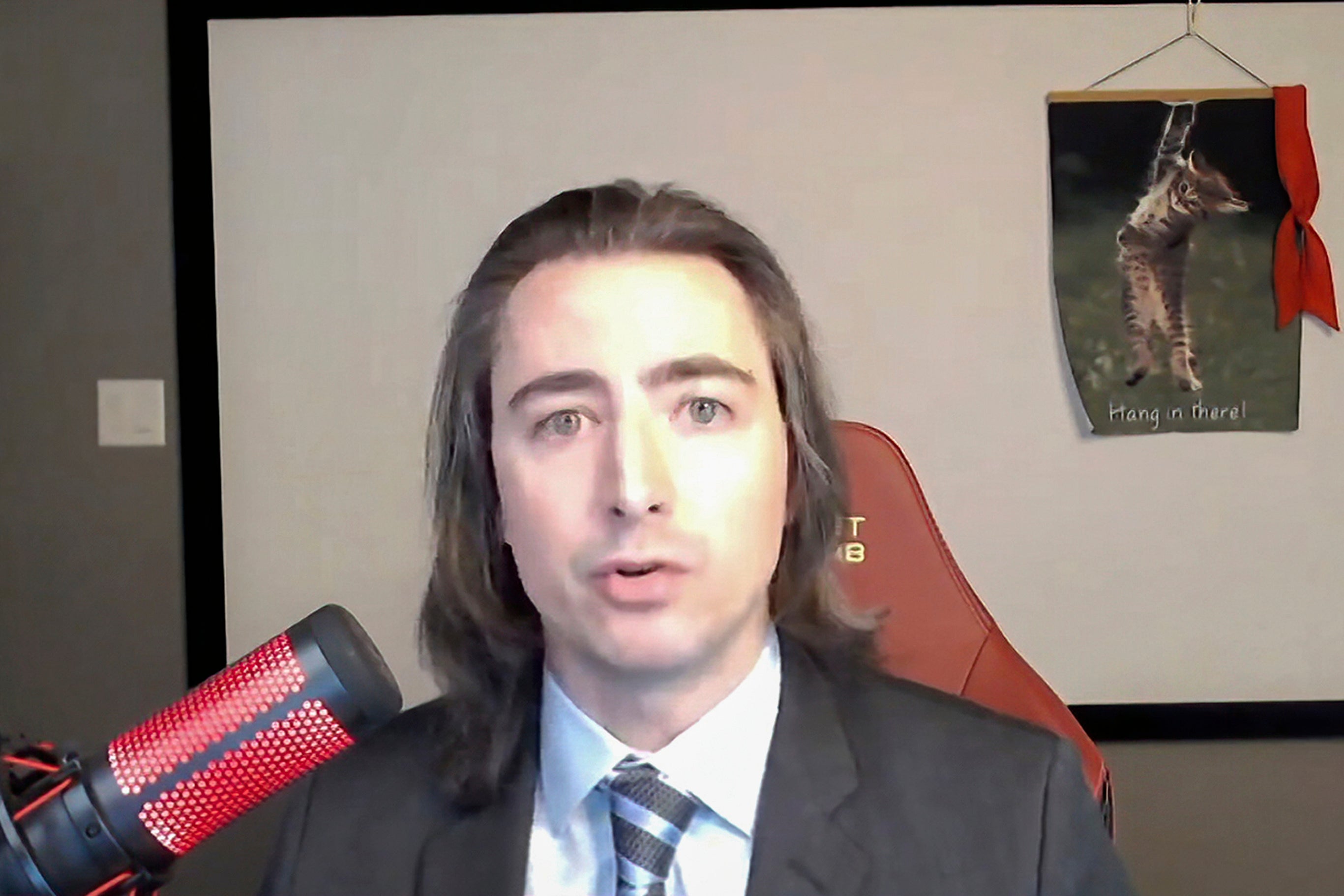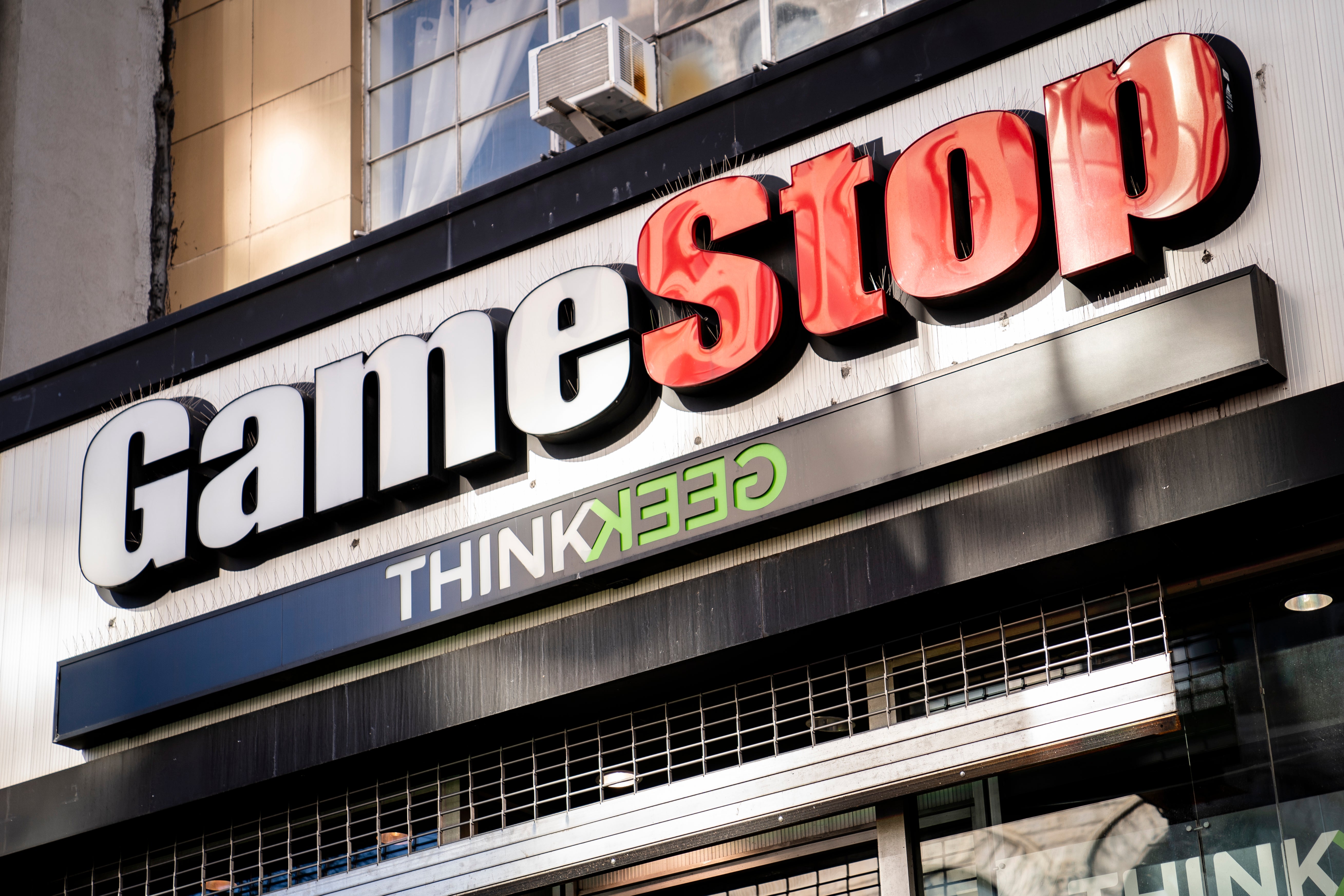
The man who helped fuel a “meme stock” craze during the COVID pandemic has returned online for the first time in three years - but his background and popularity remain a mystery to many.
RoaringKitty, aka DeepF***ingValue, aka Keith Gill, power to influence the market remains today. His first social media postings in years caused stocks to rise yet again.
It seems like a lifetime ago, but Mr Gill is credited with kicking off the 2020-2021 GameStop stock spike that shocked and bewildered the investment world during the height of the coronavirus pandemic.
He became such a central figure in the meme stock movement that he eventually was called to testify before Congress about his role in the short sale battle that massively inflated the stock price of a struggling brick-and-mortar video game retailer.
Here is a look at the man behind the craze and his massive influence on the markets:

Keith Gill
Mr Gill is a former online financial analyst who also created digital content focusing on investment. He posted videos to his YouTube page under the name "Roaring Kitty" and was known by his Reddit handle "DeepF***ingValue", which was often abbreviated as DFV.
The Massachusetts native began working for MassMutual in 2019 as its director of financial wellness education, but had been sharing his perspectives on investment for years prior to his first major finance job, he told Congress.
He joined X/Twitter in 2014 under the Roaring Kitty handle, sharing his tips for "hunting stocks and pouncing on investment opportunities,” according to his profile at the time.
Mr Gill also made clear he was not offering professional financial advice, noting on his bio that his opinions were intended for "educational purposes only."
A year later, he joined YouTube and used the same handle to post videos and host livestreams focused on day trading and investment research.
Then, in 2019, he joined Reddit, and became a prolific poster on the WallStreetBets subreddit.
GameStop
It was 2019 when Mr Gill first began promoting his idea that GameStop was being undervalued. At the time, GameStop was struggling due to the shift in the video game retail industry. For years, gamers who wanted to buy a new or used game had to do so through a brick-and-mortar store.
Sony and Microsoft launched their own digital stores on their PlaySation and XBox consoles, respectively, which allowed gamers to download digital versions of their games immediately after launch from the comfort of their homes. The stores also frequently discounted games, meaning even if a customer did not want to pay full price, they could wait for a sale to pick up a game rather than searching through a selection of used games at their local shop.
As more and more gamers opted to buy their games on Sony’s and Microsoft's stores, GameStop’s stock price began to fall, leading individual and hedge fund short sellers to bet on the company's demise, The Street reports.

Mr Gill was adamant in his online spaces that the stock was undervalued. At the time, the world was stuck inside due to the ongoing COVID-19 pandemic, and a subculture of alternative investors with pandemic stimulus money in hand — many who had already bought into the idea of sticking it to the financial establishment through risky and volatile investments by the rise of cryptocurrencies — was eager to jump into the "fight" against the hedge funds on behalf of a game retailer they had fond memories of as children.
Aiding them was the rise of Robinhood, an investment app that made trading simple for even the most uneducated investor.
On January 4, 2021, GameStop's stock price closed trading at $17.25 per share. By the end of the month, the company's price had shot up to a premarket high of more than $500 per share.
The unprecedented short sale has since been turned into film, Dumb Money, starring Seth Rogan and Paul Dano, who portrayed Mr Gill.
Mr Gill Goes to Washington
By February 2021, the historic short sale was generating daily headlines, with many wondering how high the stock price would rise and what it meant for the market.
On February 2, US Treasury Secretary Janet Yellin called for a regulatory meeting to discuss the volatility caused by the GameStop debacle. The meeting, named "Game Stopped? Who Wins and Loses When Short Sellers, Social Media, and Retail Investors Collide" was held two weeks later by the House Financial Services and Senate Banking Committees.
Vlad Tenev, the CEO of Robinhood, addressed the panel, assuring them that Robinhood was not working on behalf of the hedge funds. The company had come under fire from investors after it temporarily limited the buying of GameStop stocks — a move that other brokers made as well — during its meteoric rise, frustrating activist traders.
Tenev insisted the halt was due to the clearinghouses that actually conducted the trades made on the app raising their prices per trade.
During Mr Gill's testimony, he ensured Congress he was not a hedge fund or a cat.
“A few things I am not: I am not a cat. I am not an institutional investor, nor am I a hedge fund," he said.
He told Congress that he was an individual investor with no insider knowledge of GameStop and that all of his comments regarding the company's valuation were based on publicly available information.
Mr Gill told the panel he believed GameStop's "legacy business" — selling previously used games and equipment — was being undervalued ahead of Sony’s and Microsoft's upcoming 2020 console releases — the PS5 and the XBox Series X/S. He also expressed faith that company would be able to pivot its business to fit into the more digital-focused world of game retailing.
His testimony also included an explanation for why he shared his opinions on social media. He told the panel he did so because "hedge funds and other Wall Street firms have teams of analysts working together to compile research and critique investment ideas, while individuals have not had that advantage."
Mr Gill also insisted the belief it was his ideas alone that caused the surge were "preposterous."
“The idea that I used social media to promote GameStop stock to unwitting investors is preposterous,” Mr Gill said in written testimony. “I was abundantly clear that my channel was for educational purposes only. … Whether other individual investors bought the stock was irrelevant to my thesis.”
In June of 2021, Mr Gill posted a video on Twitter of a kitten falling asleep, and then largely disappeared from social media.
At the height of the GameStop spike, Mr Gill's stock holdings in the company — which he spent $53,000 to purchase in 2019 — were valued at $48m, Insider reports.
Return
On Sunday, Mr Gill returned to X, posting a sketch of a man sitting forward in his chair while playing a video game. The image appears to suggest the man is all of a sudden focused when he was previously lounging.
Despite his absence, the memestock traders on Reddit and elsewhere remained, fruitlessly trying to pump other stocks such as Bed, Bath and Beyond and AMC in an attempt to recreate the 2021 investing phenomena.
They took Mr Gill's post as a sign that something big was coming and began buying up GameStop stocks.
On Monday, the stock's price shot up by 68 percent and were halted several times due to volatility, prompting Robinhood to issue a statement ensuring investors it was not behind the freezes.
“This is incorrect. Robinhood has not shut down the purchase of Gamestop shares,” Robinhood spokesperson Anupriya Ghate told CNN. “GME is seeing elevated volatility and movement, which triggers market-wide exchange trading limits and halts. These are market-wide and not specific to Robinhood.”
Mr Gill followed his original tweet by posting an old YouTube video saying, “That’s all for now cuz I’m out of breath. FYI here’s a quick 4min video I put together to summarize the $GME bull case.”
GameStop's stock was already up by 57 percent in May, but that price was still approximately 80 percent below its peak in 2021.






